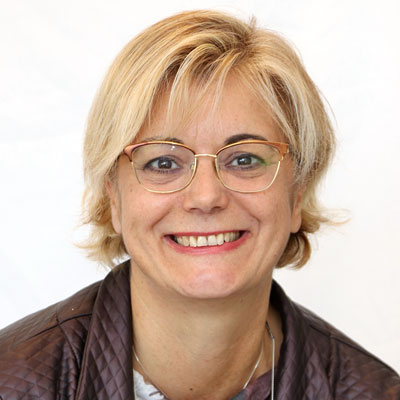Investor Eye: Israel’s Medical Device Fund Accelmed Seizes On Slow Medtech Investing
Executive Summary
Israeli healthtech fund Accelmed is seizing the opportunity to implement a medtech-investment strategy that is delivering big returns. In this Medtech Insight feature, Irit Yaniv, partner at Israeli VC Accelmed, discusses changing trends in the medtech VC industry and the hot new areas of medical technology coming out of Israel.
VC investment in medical technology companies may have declined but it’s not all doom and gloom according to one of Israel’s leading medical device investment firms.
Herzilya-based Accelmed manages assets worth almost $300m, investing in small and mid-cap public and private medtech companies and is looking to raise for a new fund this year. Established in 2009 by two well-known figures in Israel’s life sciences industry, Uri Geiger and Mori Arkin, its first fund dedicated solely to medical devices was created in 2011 with Accelmed Growth Partners (AGP) opened in 2016.
Accelmed Partner, Irit Yaniv, is an experienced senior executive in life sciences and former physician who oversees the firm’s investment in early stage Israeli medtech. Over the years, Yaniv says investors’ focus has shifted from medical devices to pharma with fewer VCs specializing in medical devices.
"Five years ago, everyone wanted to invest in medical device and now its pharma which is becoming more and more dominant in the investment world," Yaniv told Medtech Insight. "Even the ones left in the space are moving more towards digital health rather than just medical device."
For Accelmed, this shift is providing an opportunity for the funds still dedicated exclusively to medical devices. "People think the industry is declining but I don’t believe medical devices is going to disappear. There is still a need for all kinds of medical devices in health care, as the population is growing and ageing and diseases such as diabetes and heart failure are more prevalent. There are great investment opportunities, especially for those that are coming into it with expertise, knowledge, contacts and deep understanding of the markets in US, Asia and Israel."
Accelmed Growth Partners investment strategy, the Platform model, integrates innovative Israeli medical device technologies into existing commercial companies based in the US struggling to grow. With the addition of new products, Accelmed accelerates the company’s growth and then sell it for a high return of investment. Accelmed also do growth investments in companies with revenues in excess of $10m.
"We are trying to bridge the gap by helping Israeli companies to reach the market and provide mid-size US companies with an opportunity to access innovation specifically from Israel," Yaniv explained. "We look for medical device companies in the US with sales between $20m and $50m and an existing sales force, then match and add late stage innovation preferably from Israel. We are trying to implement innovation even in our investment strategy, so we are not just a VC that is waiting for a deal flow. We are an active team that are seeking for opportunities based on knowledge and needs."

Success Stories
To date, Accelmed has completed several deals under this model. Last year it sold urology device maker Cogentix to Canadian company Laborie for $242m, making a 250% return on investment following an initial $25m investment. After acquiring core control of Cogentix, the firm added more urology products to its pipeline which increased revenue and 18 months later sold to Laborie at a share prices of $4 after acquiring the control at $1.55.
In the dental space, Accelmed acquired Keystone Dental, a Burlington, MA-based dental implant manufacturer and merged into it the Israeli dental company, Paltop. "We found that we could advance the US company [Keystone] in a few ways," Yaniv said. "Adding capabilities of sales in Europe, as the Israeli company [Paltop] had sales mainly to Europe, having implants manufacturing in Israel reduced production costs substantially so we moved manufacturing from US to Israel and last Paltop developed a top of the line digital workflow solution for dentistry. We merged the two companies together and now have a company with close to $50m in sales and significantly reduced manufacturing cost."
Accelmed has also injected $13m to acquire control of Strata Skin, a public company with $31m sales of laser treatments for psoriasis. Since it gained majority stake last year, Accelmed has made several operational changes to the company, that resulted an increase of 250% in its share price.
Yaniv said Accelmed continues to look-out for companies like Strata Skin. "We always keep a close watch on the healthtech ecosystem searching for those companies that are reaching $20m in revenue or have strong sales force or those that their share price is attractive."
Targeted Innovation Strategy
Accelmed's other investment strategy (10% of the fund) focuses on targeted innovation based on disruptive technologies in the biggest markets.
"We are looking for solutions that will really change the way a patient is treated, so it should be in large fields like diabetes, heart failure, pulmonary hypertension," Yaniv said. "We believe innovation in these fields is a real game changers in medical devices, as opposed to products that provide a slightly improved procedure, which can be nice but challenging to bring them to a nice return for investors."
This year, Yaniv will co-chair the Disruptive and Advanced Medical Devices track at MiXiii BIOMED,* Israel’s largest conference for the health care industry, held in Tel Aviv. According to Yaniv, Israel is strong in cardiovascular and metabolic innovation and BIOMED will bring together promising start-ups such as Vectorious Medical Technologies, which is targeting heart failure treatment with the world’s first ‘in-heart microcomputer.’
The company’s V-Lap device is implanted into the left atrial to monitor pressure and enable easy-to-access data through a cloud-based system. Physicians then get daily ‘push button’ readings of the patient’s hemodynamic pressure to provide early, accurate physiological indications of cardiac decompensation. In Feb 2019, the company announced its first successful in-human implantation.
Nazareth-based Paragate Medical is taking a unique approach to treat patients with congestive heart failure. The start-up, which is a portfolio company of the NGT3 incubator, has developed a fully implantable, miniature system that functions as a mechanical bypass of the kidneys.
The system is based on a minimally invasive flat absorption device that interfaces intraperitoneal membranes. By applying hydrostatic pressure gradient, systemic extracellular fluid is drawn and slowly drained to the urinary system, thus preventing recurred fluid accumulation and giving a chronic out-of-hospital treatment options for the frequent flyers of the hospitals.
Blue Wind Medical has developed a platform neuromodulation device that can be positioned in numerous peripheral nerves to treat multiple clinical indications. The company is initially targeting the large overactive bladder market and last year completed a three-year study evaluating the performance of its Renova iStim for the management of overactive bladder, including urinary urge incontinence and symptoms of urgency frequency.
Results showed that 75% of patients experienced at least a 50% long-term reduction in symptoms. Half of the patients also experienced a durable, long-term, effect of urinary urge incontinence relief in leaks and 80% showed a reduction in large leaks. A pivotal study to earn US Food and Drug Administration approval will commence in 2019.
However, Yaniv said it takes more than a strong technology to get the attention of big strategic companies these days. "We look for companies that already have revenues instead of just companies with regulatory approval or proven technology. Nevertheless, for disruptive technology, we want to believe that strategic companies will be more interested earlier," Yaniv said. "When we approach them with a solution in one of the big areas like diabetes or heart failure, they are more willing to talk to us earlier."
Wised Up Investment
The trends in venture capital investment are constantly shifting, but Yaniv said funds have also matured in their understanding of investment risk. "Today all of us know from the beginning to assess the reimbursement landscape, the regulatory path and we are not going to invest if we don’t have a clear understanding so, we know what to expect as much as we can," she said.
"We are much more responsible. We try to control and mitigate risks from the beginning. For example, it is clear to all of us, that one must consider and take care of the reimbursement pathway from the beginning and not only post approval."
"We recently took one of our companies to the US and sat with a reimbursement expert. This company is still in the middle of first in human study, but the comments we got from this expert were so critical and essential –what to write in the physician guide, how to describe the procedure and how to select the patient populations. For him it was obvious that all that will affect reimbursement. Words have a great deal of power and we see companies and CEO’s also starting to understand this."
Accelmed’s deep knowledge of the device industry and Israeli innovation will drive the firm’s next success stories as it gears up to raise for a new fund, Yaniv said
"We can pick up those opportunities that no one wants to invest in, get them at a low valuation, work with them in capital efficiency and get them to be more promising. I believe we will see more and more of those opportunities and the trend of healthtech investment going up again," Yaniv said. "This notion will support the establishment of our new venture fund."
"For now, with few VCs investing in medical devices it means for funds like us that have strong expertise and knowledge and know how to pick up on the good things in the industry – the possibilities are endless."
*MiXiii Biomed is Israel’s leading international life science conference and exhibition, held May 14-16 in Tel Aviv. The conference is the main annual meeting place for representatives of Israel’s health-care industry with their colleagues from around the world. Previous successful conferences hosted over 6,000 industry executives, scientists, physicians, engineers and investors, with approximately 1,000 of the participants coming from over 45 countries.
